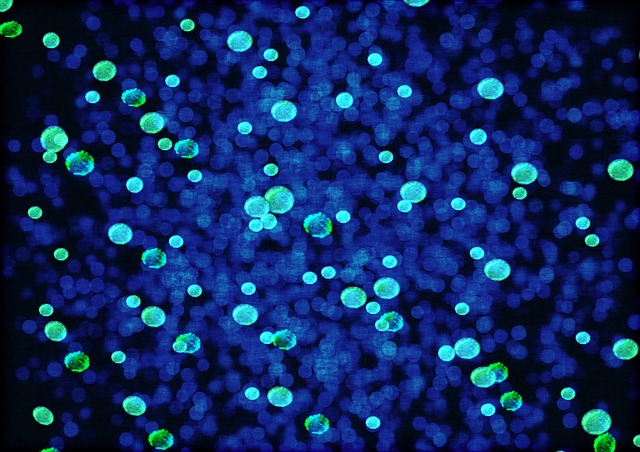Antibodies are an essential tool in most medical and research laboratories, and they have been used to fight against infections for around 130 years. The immune system creates antibodies to identify and neutralize foreign substances such as bacteria and viruses.
These proteins have a unique structure that allows them to bind to specific substances, which can be used in various applications. They help ward off diseases and improve the balance of human cells. There are different types of antibodies, but in this article, we’ll focus on polyclonal and monoclonal antibodies.
But what are polyclonal and monoclonal antibodies? And what are the main differences between them?
Continue reading to find out.
Definition of Monoclonal vs. Polyclonal Antibodies
- Monoclonal Antibodies: The term “monoclonal antibodies” refers to a single clone of plasma B cells that produces a homogenous population of antibodies. This indicates an antibody production service and solution phase peptide synthesis can yield a particular monoclonal antibody type by a plasma B cell clone descended from a standard ancestral plasma B cell.
- Polyclonal Antibodies: Polyclonal antibodies are a collection of immunoglobulin molecules released in response to a specific antigen; each antibody recognizes a separate epitope. This demonstrates that polyclonal antibodies are composed of a diverse array of antibodies. Each type of antibody in the mixture is derived from a distinct clone of plasma B cells.
Production of Monoclonal vs. Polyclonal Antibodies
Polyclonal antibodies: Multiple clones of plasma B cells are used to synthesize polyclonal antibodies. Immunization is also the initial step in the development of polyclonal antibodies. Here, a specific antigen can immunize an animal. This antigen may have many epitopes. Each antigen’s epitope is targeted by a different antibody produced by the immune system. It is possible to obtain polyclonal antibodies by directly harvesting them from the animal’s serum. Polyclonal antibodies bind to many antigen epitopes, improving the ability to identify a specific antigen.
To produce monoclonal antibodies, an animal must first get an injection containing the epitope that will be used. This is known as immunization. The animal’s body may subsequently develop antibodies directed towards the epitope in question. The next step is to collect immune cells from a specific place. These plasma B cells are joined with the myeloma cell to make a group of hybridoma cells that can live forever. HAT media is used to grow vast numbers of monoclonal plasma B hybridoma cells.
Culture vessels can be used to extract monoclonal antibodies. Only one particular epitope on the antigen can be recognized and bound to by monoclonal antibodies. As a result, these antibodies can be utilized to detect the presence of a specific pathogen that causes sickness in the host. As a result, monoclonal antibodies are typically used as medicinal agents.
Polyclonal Antibodies vs. Monoclonal Antibodies: Treatment
The ability of monoclonal antibodies to identify and target specific molecules is where they have distinguished themselves in a clinical setting. Markers are first added to the Fc regions of monoclonal antibodies, which are then utilized to identify cellular surface components. This study supports the use of monoclonal antibodies in medicine. The FDA initially approved OKT3 (also known as Muromonab) in 1985 as a transplant rejection medication for organ transplant recipients to prevent graft disease. Since then, the FDA has approved forty-one additional antibodies to treat cancer, rheumatoid arthritis, asthma, and other disorders.
Additionally, monoclonal antibodies are utilized as drug delivery vehicles to reach the target cell (e.g., a cancerous cell). The medicine is released and starts working as soon as the antibody-drug conjugates come into contact with the target cell. On the other hand, polyclonal antibodies are not as good at killing cancer cells as monoclonal antibodies because they are not as specific and react with many different things.
Diagnostic Studies of Monoclonal vs. Polyclonal
Antibodies can be monoclonal or polyclonal, but which is more effective? It is dependent on the distinct properties of monoclonal and polyclonal antibodies.
In diagnostic tests and hemagglutination procedures, polyclonal antibodies are appropriate reagents due to their ability to detect a target molecule’s distinct epitopes. Polyclonal antibodies are most effective when used to identify unknown antigens. In immunoassays, using polyclonal antibodies as a secondary antibody is standard practice (e.g., ELISA, western blotting, microarray assays, immunohistochemistry, and flow cytometry).
They attach to multiple epitopes and enhance the signal, improving detection. Monoclonal antibodies, on the other hand, provide an infinite supply of homogeneous antibody that, once described, behaves predictably. Because of its capacity to selectively bind to a single epitope of an antigen, monoclonal antibodies are frequently utilized as primary antibodies in immunoassays. Some drawbacks of using every type of antibody have been eliminated through practical application. To reduce cross-reactivity in their experiments, businesses can purify polyclonal antibodies. When monoclonal antibodies are combined, they capture several epitopes and broaden their specificity.
Conclusion
You have now seen the difference between monoclonal and polyclonal antibodies. Both are used in research and diagnostics, and both find their use in disease detection. Before getting a sample, make sure you know what kind of test or antibody you are supposed to provide with your sample. In summary, there are a few critical differences between monoclonal and polyclonal antibodies, but in truth (and in practice), they are pretty similar. Generally, both two types of antibodies will bind to the same epitope on the target protein. If one is chosen over another, it usually just comes down to cost or convenience.





